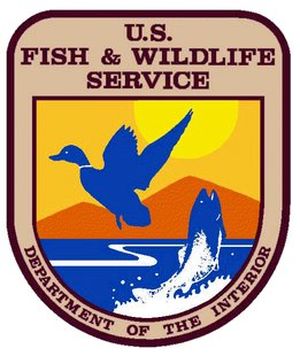Deer trafficking bust nets $1.6 million fine; largest in U.S. history
WILDLIFE CRIMES -- A Georgia man guilty of trafficking deer across state lines for an illegal hunting operation has been ordered to pay $1.6 million in fines and restitution -- the largest sum of money ordered of an individual to pay for a wildlife crime in the United States.
This distinction goes to Benjamin N. Chason, 61, of Climax, Georgia, who pleaded guilty in 2014 and was sentenced in U.S. District Court for three charges related to violating the Lacey Act.
Here are the details from the U.S. Fish and Wildlife Service report released last week after details of the sentencing were unsealed on Sept. 15:
Of the $1.6 million, $600,000 is to be paid into the Ohio Department of Natural Resources Wildlife Habitat Fund $200,000 to the Federal Endangered Species and Wildlife Diversity Fund, $400,000 to Columbus and Franklin County Metro Parks and $100,000 to the Ohio DNR Division of Wildlife Turn in a Poacher (TIP) program..
According to court documents, Chason and co-conspirator Donald W. Wainwright, Sr., trafficked in live white-tailed deer. Wainwright, Sr. owned hunting preserves in Logan County, Ohio, and Live Oak, Florida; both preserves were named Valley View Whitetails. Donald Wainwright, Jr. was part-time resident and part-time operator of the site in Ohio. Chason was part-owner of Valley View Whitetails in Ohio and also owned an extensive high-fenced property containing white-tailed deer in Climax, Georgia.
Wainwright, Sr. illegally shipped deer to Florida from Ohio and attempted to ship deer to Georgia from Ohio. The deer herds involved with these shipments were not certified to be free from chronic wasting disease, tuberculosis and brucellosis. Federal law requires interstate shipments of deer to be certified to be disease-free; because the deer in the present case were not certified as disease-free, deer herds (both captive and wild) in Florida were potentially exposed to these diseases. Tuberculosis and brucellosis can also be transmitted from deer to cows and humans.
The attempted shipment to Georgia was intercepted on I-71 South, about 50 miles from the Ohio River, when Ohio Division of Wildlife officers noticed deer noses and antlers inside a cargo trailer and pulled over a truck driven by Wainwright, Sr.’s employees.
Wainwright Sr. and Chason placed federal identification tags from a certified deer that had previously died into the ear of an uncertified deer they were selling. They then sold breeding services and semen from the deer to breeders around the United States.
The defendants also sold illegal white-tailed deer hunts at Valley View Whitetails of Ohio. They induced clients from around the country to hunt at Valley View Whitetails of Ohio – charging customers from $1,000 to $50,000 to kill deer inside his high fence preserve when Wainwright did not have a hunting preserve license. The customers then took the bucks back to their home states, including: Florida, Michigan, Alabama and Virginia.
“Illegal sale and transport of white-tailed deer are serious crimes and I appreciate the teamwork and cooperation between all of the agencies involved to help obtain these convictions,” ODNR Division of Wildlife Chief Scott Zody said.
"We are pleased to see the positive results in this investigation. The U.S. Fish and Wildlife Service, Office of Law Enforcement considers the potential spread of disease caused by the illegal commercialization of fish and wildlife resources a high priority, and we will continue to work closely with our State partners to assist them in these important investigations," said Edward Grace, U.S. Fish and Wildlife Service Deputy Assistant Director for Law Enforcement.
Chason pleaded guilty on May 1, 2014. Besides being ordered to pay restitution, Chason was sentenced to three years of probation and four months of home confinement. Chason also agreed to publish a statement in North American Whitetail Magazine and perform 150 hours community service in an Ohio or Georgia State Park.
Wainwright, Sr. pleaded guilty on February 27, 2015, to 12 charges related to violating the Lacey Act, one count of conspiracy and one count of wire fraud. He was sentenced to 21 months in prison, a $125,000 fine 200 hours of community service to be served in a parks system and ordered to publish an article in The Deer Breeders Gazette.
Wainwright, Jr. pleaded guilty on February 17, 2015, to eight charges related to offering illegal hunts in violation the Lacey Act and was sentenced to four months of house arrest and three years of probation.
Under the Lacey Act, it is unlawful to import, export, transport, sell or purchase wildlife, fish or plants that were taken, possessed, transported or sold in violation of a state, federal or foreign law. When it was passed in 1900, the Lacey Act became the first federal law protecting wildlife.
Carter Stewart, U.S. Attorney for the Southern District of Ohio, Gregory Jackson, Special Agent in Charge, United States Fish and Wildlife Service Office of Law Enforcement, Chief Scott Zody, Ohio Department of Natural Resources Division of Wildlife, Franklin County Prosecutor Ron O’Brien, the Florida Fish and Wildlife Conservation Commission and Georgia Department of Natural Resources announced the sentence, which was unsealed Sept. 15, 2015

